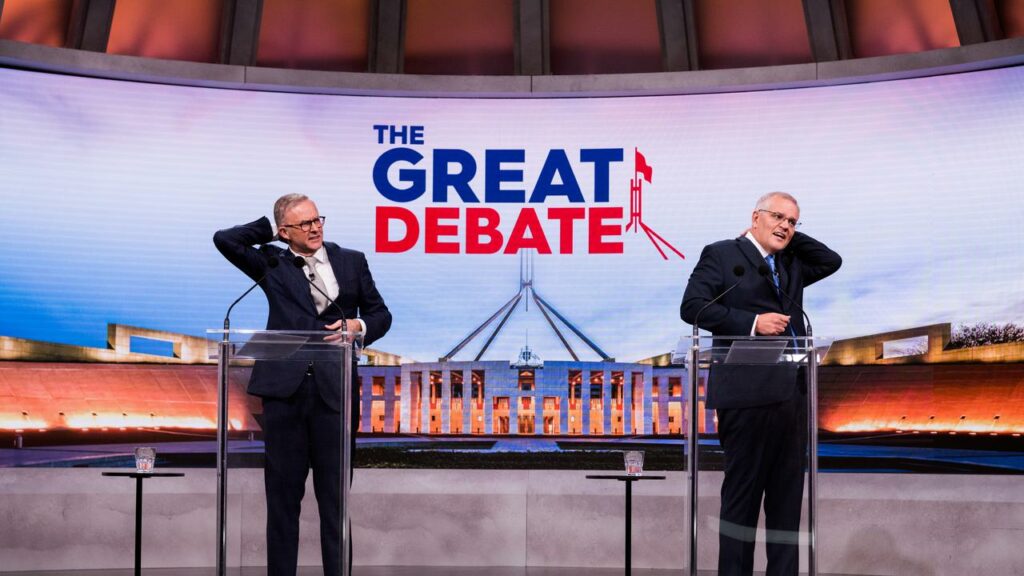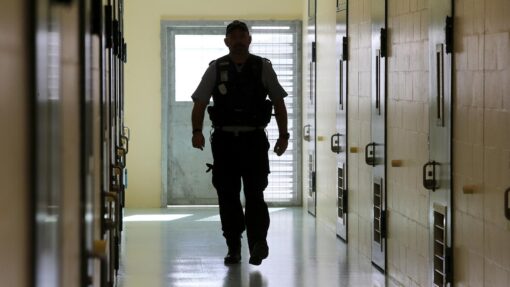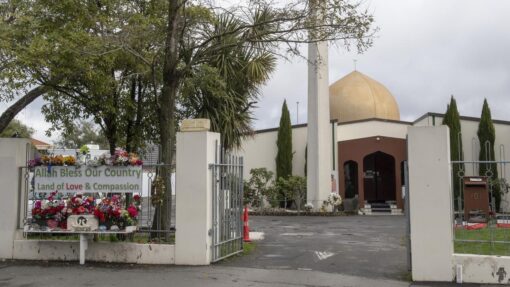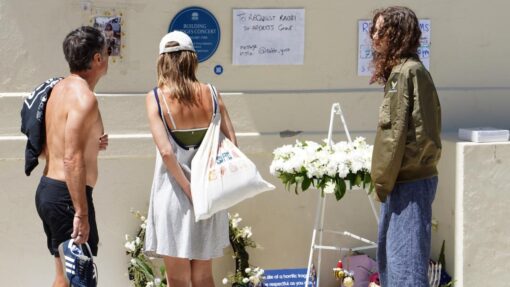Morrison defends feisty debate performance
Andrew Brown and Tess Ikonomou |

Scott Morrison has defended his performance in the second leaders’ debate, following a shouty and feisty contest with Anthony Albanese.
The prime minister visited Sikorsky Australia’s manufacturing site in Nowra, in the marginal NSW seat of Gilmore with Liberal hopeful and former NSW transport minister Andrew Constance.
Mr Morrison inspected a Seahawk helicopter, before speaking about the Nine Network’s debate format, which he said led to the shouting match between himself and his opponent.
“The way the debate was set up made it difficult to hear in the room itself,” he told reporters.
“It was a spirited debate. I think Australians expect spirited debate, and the last one was a bit more measured.”
Later in the day, Mr Morrison and Mr Constance visited Nowra Golf Club to spruik the government’s handling of the economy.
Speaking at the event, the prime minister pointed to the JobKeeper scheme and said the government had leaned on the resilience of communities as they came up with solutions to the pandemic.
“I don’t see the solution in the government,” he said.
Sunday night’s debate was declared a draw, but both major parties sought to claim victory.
Speaking in Sydney on Monday while launching Labor’s policy to boost the number of high-performance teachers, the opposition leader said Mr Morrison failed to bring anything to the table during the debate.
“Scott Morrison didn’t have anything to say except shouting, he only had smears and that smirk throughout it all,” Mr Albanese told reporters.
“I put forward ideas … I ask you to think about what were the policy measures that Scott Morrison said he would do in his fourth term if he’s elected. If he is given three more years, we can’t afford three more years of the same.”
Mr Albanese then travelled to Adelaide, where campaigned alongside Premier Peter Malinauskas, announcing a $400 million expansion of the Flinders Medical Centre.
The prime minister said he hoped the third and final debate, scheduled for Wednesday night on the Seven Network, would have more rules enforced.
However, Mr Morrison dismissed criticism he was dismissive of moderator, 60 Minutes reporter Sarah Abo, because she was a woman.
“I don’t believe gender had anything to do with it,” he said.
“Both Anthony and I think we’re completely respectful.”
Monday marked the start of pre-poll voting for the May 21 election at more than 500 locations across the country.
While large numbers of early voters are expected during pre-poll, Mr Morrison said he was not concerned that large numbers of people could already be voting against him.
“Right now today, people are turning up and voting at pre-poll, right across the country and they’re making a choice,” he said.
“People are making assessments and so many, as we are seeing, are still to make a decision.”
While a hung parliament remains a possibility, Mr Albanese said Labor was looking to govern in its own right.
“I will be working every day for 76 (lower house seats),” he said.
“We should have 150 Labor members in the House of Representatives, that is my starting point. I think we will fall short of that, but my objective is 76.”
It comes as two new opinion polls showed Labor growing its lead over the coalition as the campaign enters its final fortnight.
Despite not being able to guarantee a lift to real wages at Sunday’s debate, Mr Albanese said he remained confident about working alongside businesses and unions to improve working conditions.
“The truth is we have had flatlining wages over 10 years. The key to lifting wages is lifting productivity,” he said.
“Our clear objective is to lift up living standards … (the prime minister) couldn’t even say that Australian workers should be paid the minimum wage.”
Mr Morrison hit back, saying the best way to make wages increase was to lower the unemployment rate.
“Businesses can make wages go up. When businesses are doing well and when unemployment is going down, then wages go up,” he said.
“What makes wages go up is a strong economy where businesses are doing well and they can ensure that they can pay staff even better and above award rates.”
AAP


